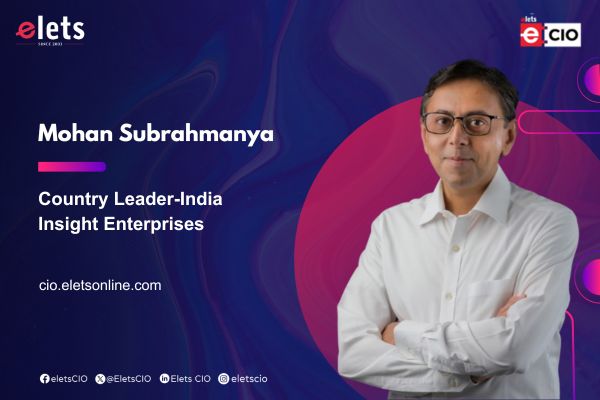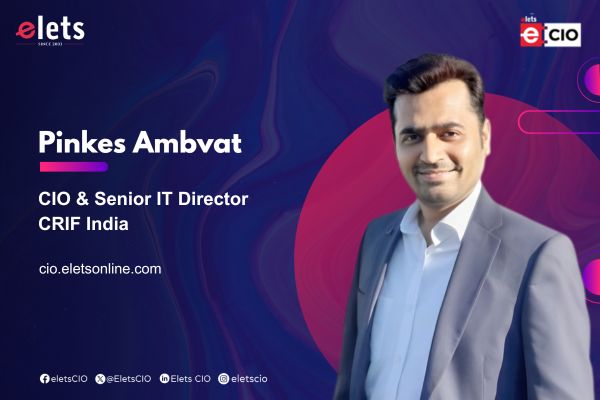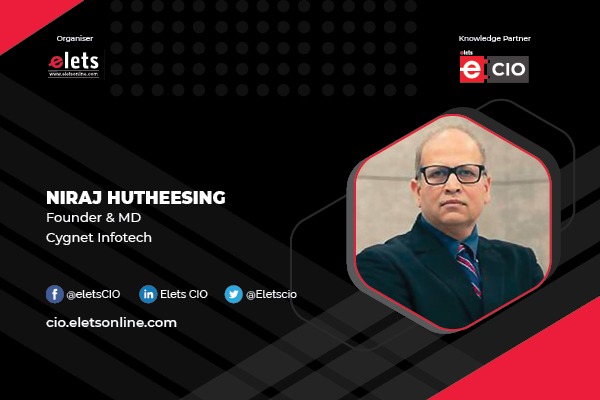
We provide business intelligence to more than 50,000 organisations across the world through our intuitive and end-to-end data integration and analytics solutions. We help enterprises break down the traditional information silos through offerings such as self-service data visualisation, guided analytics applications, embedded analytics and reporting – thus helping them realise the maximum value from their data, says Ankur Goel, Managing Director, India, Qlik in conversation with Anupama Mehra of Elets News Network (ENN).
1. Give us an overview of your products and services.

As a domain-leading player in the global analytics space, Qlik provides business intelligence to more than 50,000 organisations across the world through its intuitive and end-to-end data integration and analytics solutions. We help enterprises break down the traditional information silos through offerings such as self-service data visualisation, guided analytics applications, embedded analytics and reporting – thus helping them realise the maximum value from their data.

We have recently strengthened the robust portfolio of Qlik solutions with acquisitions such as Attunity, Podium and Crunch Data. These acquisitions have made our offerings more relevant to the data journeys of our customers who are looking for data integration, cataloging, data streaming, analytics and insight generation through machine learning. The vision is to simplify data operations and help enterprises drive positive business outcomes.

2. You have more than 20 years of experience in the IT and telecommunication industry. Tell us about your overall experience in enterprise communication and key initiatives taken by you.
The telecommunication industry has always been evolving. Over the years, it has undergone multiple evolutions and iterations, from voice and video conferencing to unified communication and collaboration. The idea is to use technology to bring together people, processes, tools, and data for better business outcomes.
However, as organisations mature, they need to divest the responsibility of managing the auxiliary functions and focus on their core operations becomes critical. This is why organisations seek to streamline and simplify their operations (such as CAPEX/opex management), as well as the delivery of end-customer experiences, through managed services.
Here, one might assume that the demand is limited to large enterprises operating in the top echelons of their respective industries. This is not true. While such organisations continue to account for the highest demand, we have also observed the need for such solutions increasing in tier-2/3 cities. With several tech-led initiatives such as Digital India, e-Governance, and Smart Cities Mission, the Government of India has also emerged as a high-potential customer for technology players.
With all this in mind, I conceptualised, developed, and implemented several key initiatives for leading telecommunications companies. For instance, during my time with Poly formerly known as Polycom, we established Cloud Services for the SMB market in collaboration with a distributor Brightstar, based on ‘In India For India’ concept. At Airtel, we established the Cloud Services business with a view of meeting the evolving business requirements of enterprise customers. We have also worked with distributors on Managed and Unmanaged Partner concepts to expand Poly reach in tier-2 markets.
3. How are you looking forward to building momentum and developing even stronger ties with Qlik customers and a wide ecosystem of partners?
Qlik already has a strong global client base with a strong presence in industries such as insurance, manufacturing, and IT/ITeS, amongst others. In India, we count industry leaders such as Bajaj Auto, Cognizant, HDFC Life Insurance, HCL Technologies, Mahindra and Mahindra, Micromax, Samvardhana Motherson Group, and Sitel amongst our clients.
Personally, I feel that this wide customer base represents a great opportunity for me – and the entire team at Qlik India – to meet customers and learn from them. Understanding their diverse business requirements, priorities, and objectives will only help us build and deploy more flexible, personalised, and agile data management, analytics, and business intelligence solutions.
This is why we are conducting multiple customer workshops, roadshows, and roundtables to discuss new portfolios, as well as to gain first-hand feedback on the adoption of Qlik solutions. These events also give us an opportunity to gain a deeper understanding of customer priorities – which only helps us in enabling better business outcomes for them.
On the partner side, we are looking at multiple strategies such as educating our existing partners on our newly-acquired solutions.
Along with continuous deployment of several channel-focused initiatives and programs – such as setting up partner advisory boards – to recruit, enable, and engage our valued business partners and drive mutual business success.
As mentioned above, we are also focusing on expanding our presence in the government vertical. This is why we are prioritising the recruitment of channel partners with relevant expertise in the segment. Additionally, we are looking to leverage our strong India presence to drive our expansion in the larger SAARC market.
4. What are your future plans for Qlik?
At Qlik, we are prioritising a move towards growing our SaaS- and subscription-based business to meet market demands. This will help our customers experience and leverage the full power of Qlik’s platform and maximise their business gains. We are also looking to translate the learnings from our success in sectors such as insurance, manufacturing, and IT/ITeS to drive business growth across other verticals.
I also foresee the government business as a key growth area for us. Government departments in India, be it state or central, are sitting on a veritable ocean of data. Globally, we work with various government organisations to help them capitalise on the data they have to help them cultivate data-centric and data-literate environments so as to be able to run more efficiently.
5. How challenging it is to serve the Indian public?
India, at present, is a great place for innovation. Customers here are highly knowledgeable about tech developments and are keen to utilise the latest tools and solutions to optimise their operations. This encouraging perspective towards new technology is why we have a dedicated R&D centre in Bangalore. We are also looking to leverage our presence in India to learn what our local customers need. This can then be used by our product team to strengthen and improve our solutions on a global level.
Be a part of Elets Collaborative Initiatives. Join Us for Upcoming Events and explore business opportunities. Like us on Facebook , connect with us on LinkedIn and follow us on Twitter.
"Exciting news! Elets technomedia is now on WhatsApp Channels Subscribe today by clicking the link and stay updated with the latest insights!" Click here!











